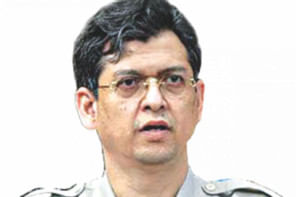Make police accountable to the people

We welcome the Police Reform Commission's recommendations to implement extensive measures to transform the police force into an institution of accountability. The commission's report, submitted to Chief Adviser Muhammad Yunus on January 16, includes crucial proposals to curb excessive use of force, prevent abuse of power, and abolish the Rapid Action Battalion (Rab), among other reforms. It also proposes the formation of a statutory body—the Independent Police Commission—to ensure accountability and neutrality within law enforcement agencies. These recommendations are both timely and necessary, but they will only yield positive results if implemented effectively.
Over the past decades, particularly during Awami League's 15-year rule, public trust in the police has eroded drastically due to corruption and political exploitation. This distrust deepened during the July uprising when police brutality—including indiscriminate shootings and killings of protesters—further exposed deep-seated systemic flaws. Following the fall of the regime on August 5, the need for police reform gained renewed urgency. Against this backdrop, the Police Reform Commission's report outlines strategies to rectify these issues and establish genuine accountability.
The Police Reform Commission's emphasis on precise, proportional, and rule-based use of force—similar to UN peacekeeping standards—is a crucial step forward. Aligning our policing with international norms by allowing the use of force strictly in self-defence will help reduce undeserved harm to life. Assessing Rab's necessity by reviewing its past human rights violations is equally essential for restoring public trust.
Its emphasis on precise, proportional, and rule-based use of force—similar to UN peacekeeping standards—is a crucial step forward. Aligning our policing with international norms by allowing the use of force strictly in self-defence will help reduce undeserved harm to life. Assessing Rab's necessity by reviewing its past human rights violations is equally essential for restoring public trust. Furthermore, introducing "clear-walled" interrogation cells to prevent custodial torture, and mandating GPS trackers and bodycams for officers on raids, will help curb extortion, arbitrary arrests, and enforced disappearances.
Other practical measures such as a citizen hotline for reporting police misconduct—including refusal to disclose identity during searches—will address some of the concerns about police. Ensuring the presence of a magistrate or a local government representative during arrests between dusk and dawn will serve as an additional safeguard against misuse of power. Moreover, increasing the number of female police officers is crucial, particularly given the rampant violence against women in our society and the harassment they face when seeking legal assistance.
However, we must remember that any success of such initiatives hinges on the cooperation of political parties, particularly the ruling one. Resistance from within the police force and other vested interests could also pose obstacles to proper implementation. Nonetheless, with strong commitment and support from all stakeholders, these reforms could lead to a more accountable, rights-focused police force and help restore public confidence.


 For all latest news, follow The Daily Star's Google News channel.
For all latest news, follow The Daily Star's Google News channel. 










Comments